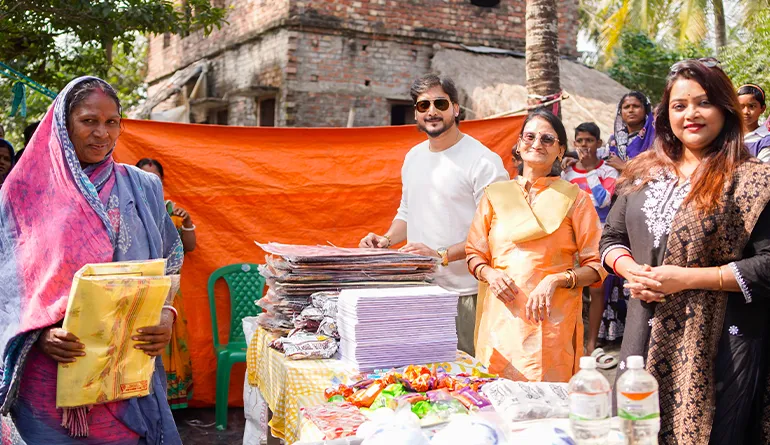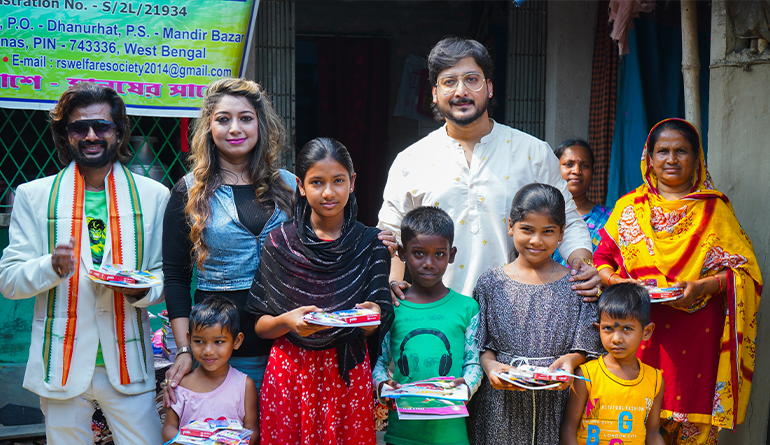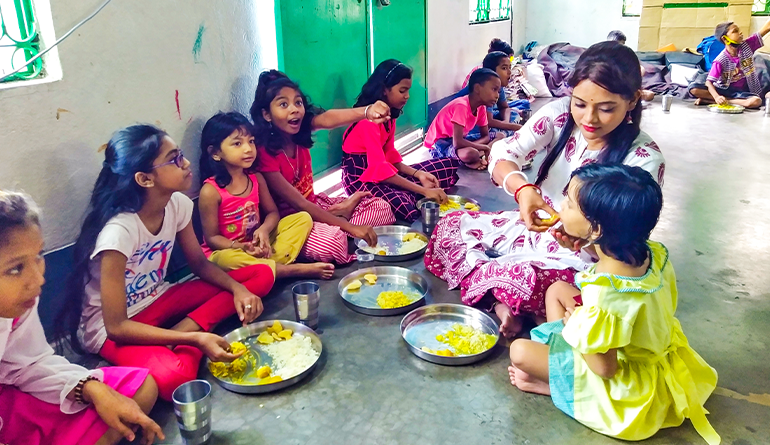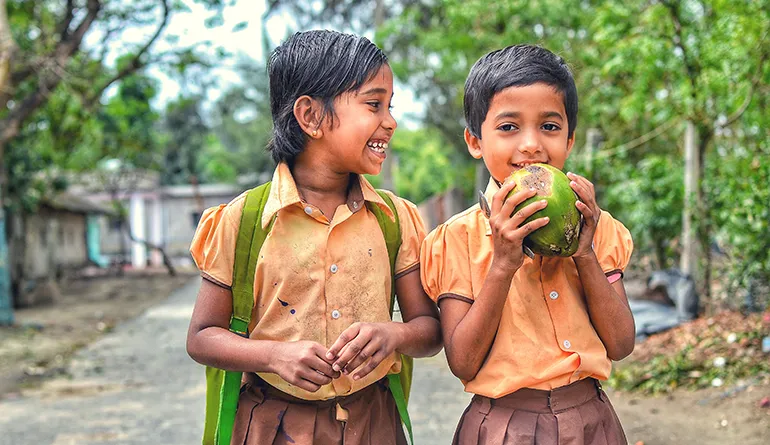Community Development NGO Kolkata: Weaving Resilience into Kolkata's Neighborhoods
In the narrow lanes of Howrah's railway squatter settlements, where 11 families share a single water tap and children study under stolen streetlights, hope is being rebuilt brick by brick. As Kolkata's most grounded community development NGO, Nabatara Foundation doesn't just build infrastructure - we co-create futures with those left behind. This is the story of how 50+ neighborhoods are rewriting their destinies through solar panels that power dreams, sewage lines that carry dignity, and women's collectives that are stitching a new social fabric. Join us as we walk through the monsoon-soaked alleys where change is happening - one community meeting, one skill training, one reclaimed landfill at a time.
“A connected community thrives when members uplift each other through care, compassion, and shared responsibility.
The Soil Where We Grow: Understanding Kolkata's Hidden Neighborhoods
The Unseen City
Behind Kolkata's colonial facades and shopping malls exist parallel worlds:
| Category | Statistic |
|---|---|
| The Invisible Residents | 1.5 million people in 2,011 identified slums (Govt. WB 2023) |
| Children of Nowhere | 58% under-5 malnutrition rate in Canal West settlements |
| Economic Ghosts | 73% daily wage workers with zero savings cushion |
Why traditional approaches fail:
"Top-down solutions collapse like cardboard shelters in monsoon season. When the municipality installed 20 toilets near Topsia basti last year, they became drug dens within months. Why? Nobody asked Mrs. Das who runs the tea stall where community trust is brewed daily." - Arjun Sen, our Field Director
Our Ground-Up Philosophy
The 3 Radical Rules of Our Community Development:
- Decisions flow from chai stalls, not boardrooms
- Community priorities set our budget - women's safety topped in 7 neighborhoods
- Residents become engineers
- Ex-ragpicker Shyamal now leads our solar installation teams
- Infrastructure must breed independence
- Water stations charge ₹5/20L - funding maintenance and microloans
Infrastructure: Not Concrete, But Dignity
Lighting the Darkest Alleys
Howrah's Night Transformation
Before:
- 7pm curfew for girls after 3 assaults in 2 months
- Vegetable vendors losing 40% income
Our Solar Revolution:
- Community Design: Women demanded lights at 17 specific danger spots
- Local Sourcing: Panels from Tata Solar, poles from local welders
- Maintenance Army: 15 youth (9 women) trained as technicians
Impact Unfolding:
- Night school attendance up 73%
- Vendor incomes increased by ₹150 daily
- Birth registrations doubled with extended clinic hours
By the Numbers: 2024 Impact Snapshot
| Sector | Projects | Direct Beneficiaries | Indirect Impact |
|---|---|---|---|
| Water & Sanitation | 32 community toilets, 15 water stations | 10,200+ | 40% reduction in waterborne diseases |
| Livelihoods | 9 vocational centers, 85 SHGs | 1,850 certified | ₹3.2 crore collective income |
| Education | 50 digital centers, 35 tutoring hubs | 5,000+ children | 98% school retention |
| Health | 48 weekly mobile clinics | 9,600+ patients | 84% vaccination coverage |
Your Invitation to Build
The Real Math of Change
| Support | Cost | Impact |
|---|---|---|
| Monthly Child Sponsor | ₹2,500 | School fees + nutrition for 1 child |
| Water Station Cornerstone | ₹50,000 | Plaque with your name at new station |
| Skill Center Sponsor | ₹12 lakhs | Naming rights + impact reports |









